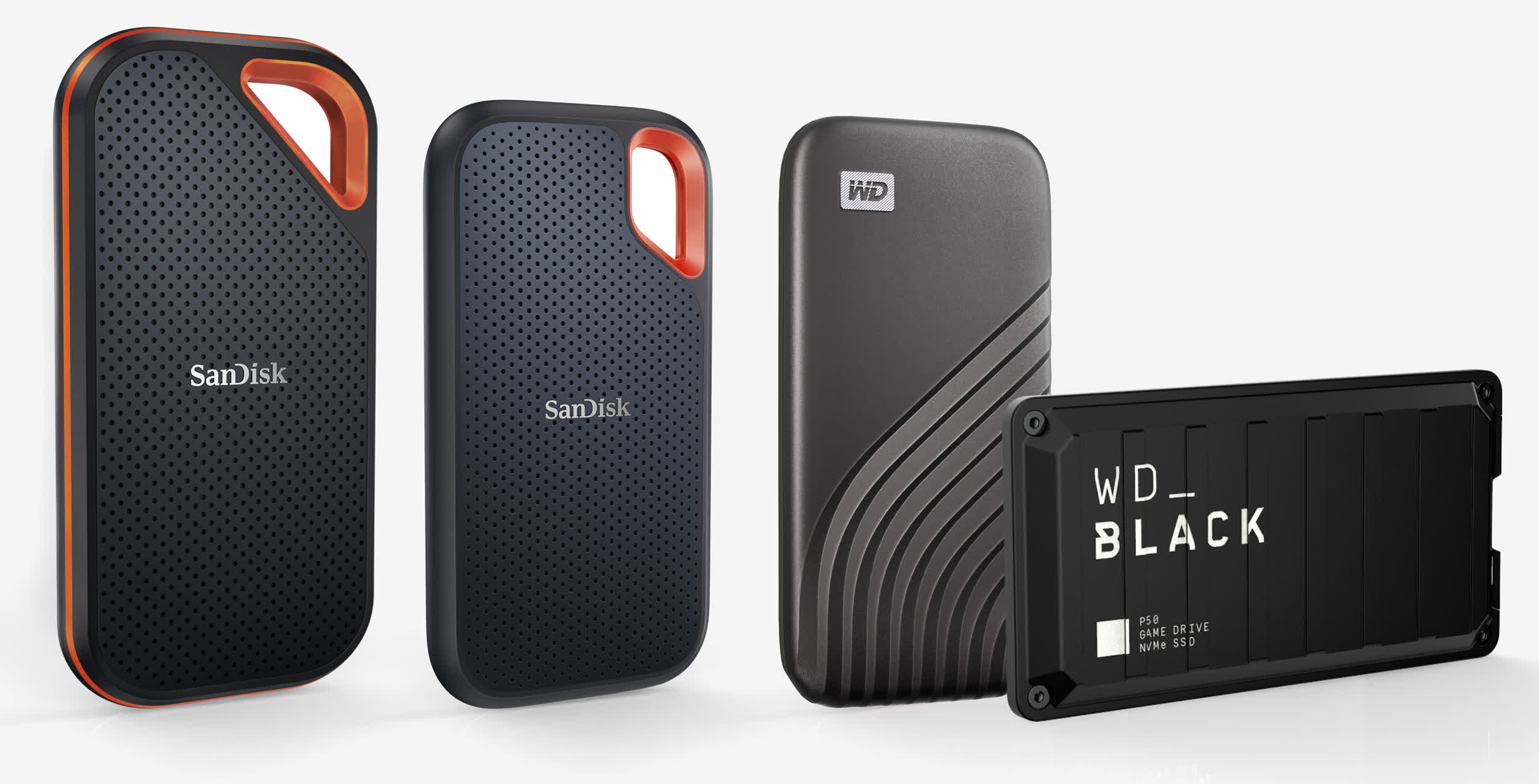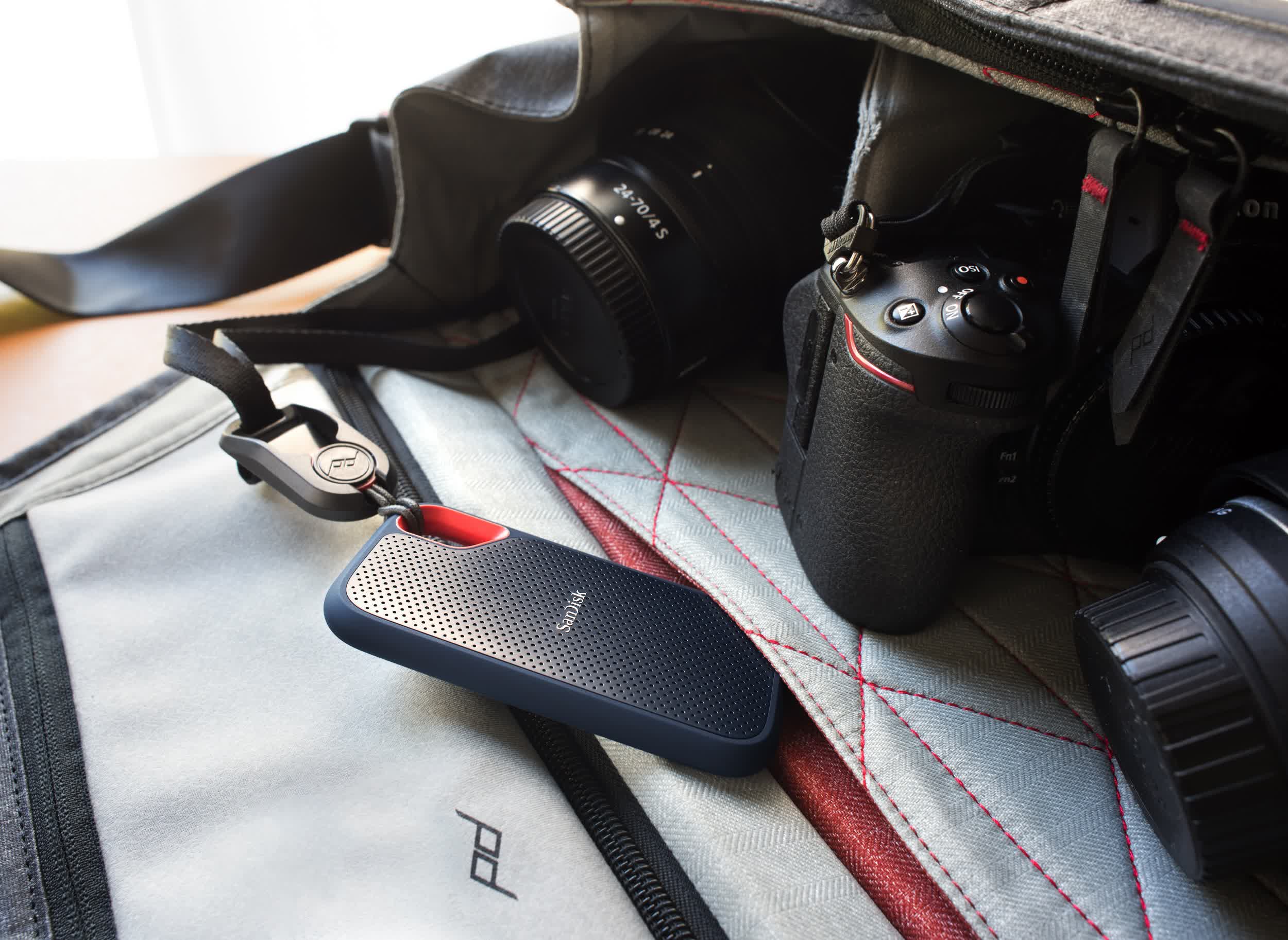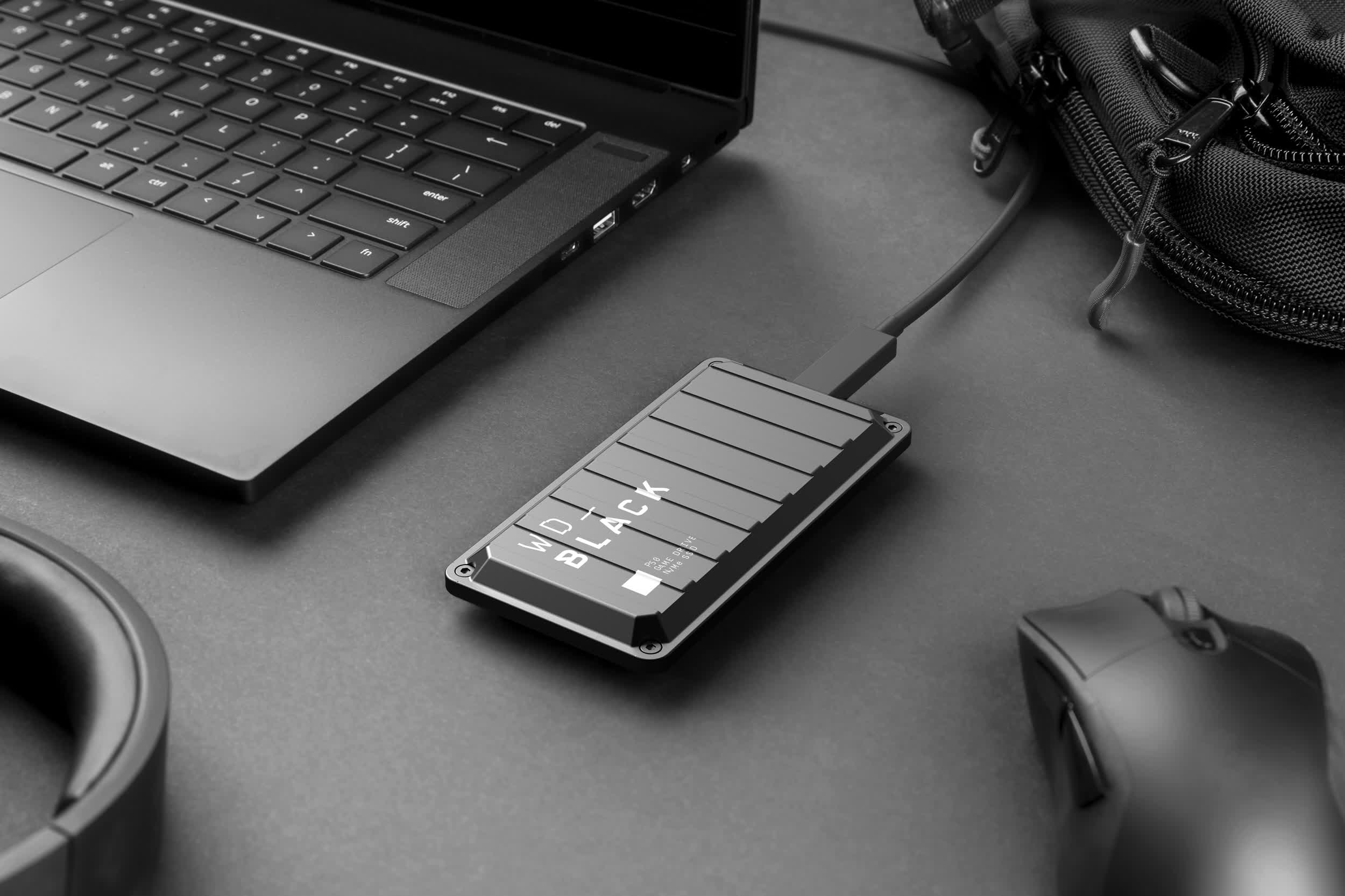The big picture: Portable SSDs like the newest models from Western Digital offer unparalleled performance and durability compared to their traditional mechanical counterparts. Sure, you're going to pay a healthy premium for flash media but the benefits afforded to creatives, professionals, gamers and ordinary users alike are worth it in the eyes of many.

Western Digital as CES 2021 this week introduced a quartet of high-capacity, portable solid-state drives across its consumer-facing brands.
Collectively, the new 4TB drives focus on performance, durability and of course, capacity, catering to a variety of target users. It starts with the SanDisk Extreme Portable SSD, an NVMe solution that offers up to 1050MB/s read and up to 1000MB/s write speeds. The unit also boasts two-meter drop protection and IP55 water and dust resistance and is expected to retail for $699.99 when it goes on sale later this quarter.

The SanDisk Extreme Pro Portable SSD, meanwhile, ups the ante with read and write performance rated at up to 2000MB/s, respectively. The drive’s aluminum chassis helps to keep temperatures down, allowing it to maintain higher sustained speeds for longer. Look for it to land this quarter from $749.99.
Related Reading: The Best SSD and PC Storage
Turning to Western Digital’s own brand, the WD Black P50 Game Drive SSD is compatible with PlayStation 4, Xbox One and PC game libraries, offering read speeds up to 2000MB/s when it goes on sale this quarter for $749.99.

Last but certainly not least is the WD My Passport SSD. For $679.99, you get read speeds up to 1050MB/s and writes at up to 1000MB/s in a package that’s drop resistant up to 6.5 feet. It’ll be available in your choice of red, blue, gray, gold and silver color schemes when it arrives later this quarter.
https://www.techspot.com/news/88257-western-digital-portable-ssd-lines-get-4tb-options.html